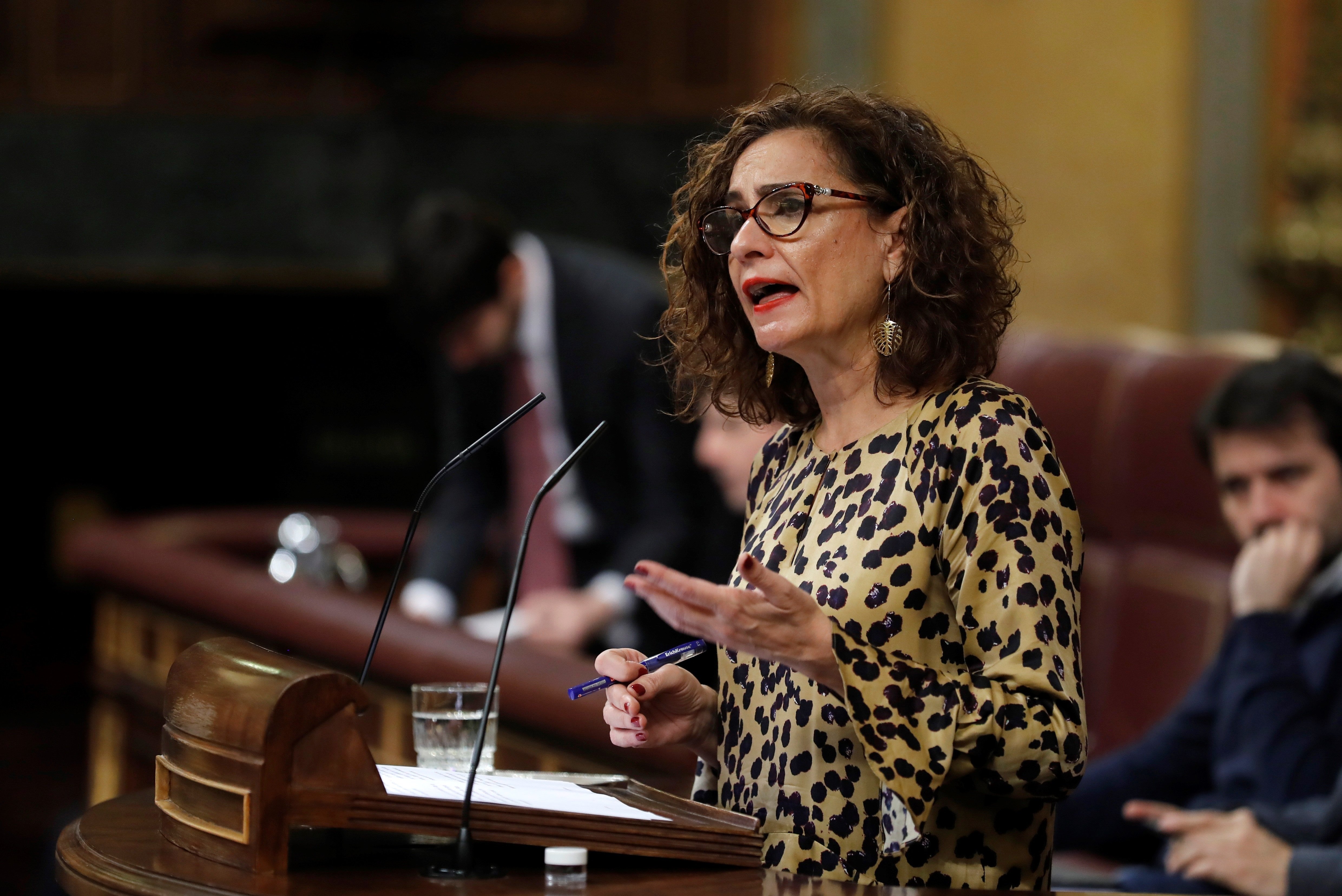It generated a fierce response from the municipal world. A transversal response, which ran all the way from the right-wing opposition to the government's investiture supports, and even took in the Socialists' coalition partner Unidas Podemos. This became evident today in Spain's Congress of Deputies, which overturned the government decree that regulates surpluses which municipal councils may have accumulated as an additional tool to face the coronavirus crisis. Pablo Iglesias's Unidas Podemos tried until the last minute to move amendments to the norm which confiscates money from councils to put it to more "rational" use. Yesterday, Barcelona mayor Ada Colau even took a trip to Madrid herself to negotiate. But all this was in vain. The stubbornness of finance minister María Jesús Montero led to defeat. The first parliamentary defeat of the coalition government.
The numbers are what they are: the PSOE and Unidas Podemos were left alone voting in favour. Apart from the right-wing PP and Vox, who were clearest about their no, other parties such as ERC, JxCat, the CUP, the PNB, EH Bildu, Ciutadans, Més País and Compromís also voted against it. In total, 193 votes against and 156 in favour. The vote ended with a standing ovation.
It was useless for the Spanish government to offer to convert it from a decree law into a plan for a future standard law, to which the parties could then vote their amendments. Nor was the last-minute agreement by the Comuns, which managed to get the finance ministry to create a municipal emergency fund of 3 billion euros, which would come out of the 5 billion envisaged for 2020 and 2021. This would be distributed based on population criteria and without the need for cities and towns to surrender their surpluses beforehand.
Even before entering the chamber this morning, members of the executive admitted that the surplus decree was doomed. "We negotiated until the last minute, but we can no longer offer anything else," they said. They criticized that, despite the complaints, no one had sent them an alternative text.
A state loan
The Spanish ministry argues that current legislation prevents local councils from being able to use their cash surpluses in general. Given this situation, minister Montero proposed that the councils voluntarily loan the state the amounts of their surpluses, with the state itself committing to return this money to them through non-financial means. The city councils would receive value equivalent to 2 billion euros in 2020 and 3 billion euros in 2021, although this would represent only 35% of the total surpluses accumulated by councils across Spain. The remaining amount would be returned within ten years.
Montero the defender
It was up to the finance minister to defend the decree in the chamber, despite being aware that the numbers did not add up. María Jesús Montero said that she was "fully respectful of the autonomy" of the municipal world and backed her plan as "the only viable alternative" given the limits of the budget stability law. In the face of accusations of "confiscation", she stressed that it was a "voluntary mechanism" and that "the Spanish government doesn't need the money from the councils." Making the surpluses available to councils, she said, "is an attempt to help by this executive." She made one last desperate attempt: "Now is the time. There is no second chance." And afterwards, Montero asserted that the councils were the losers, and that the government would "study" other proposals.

